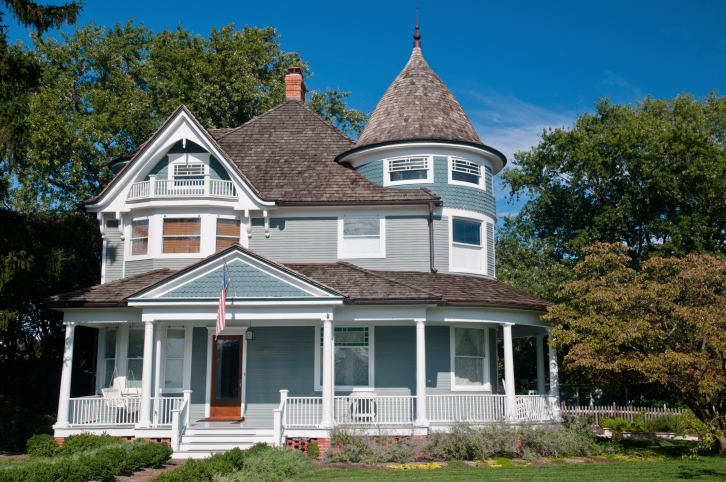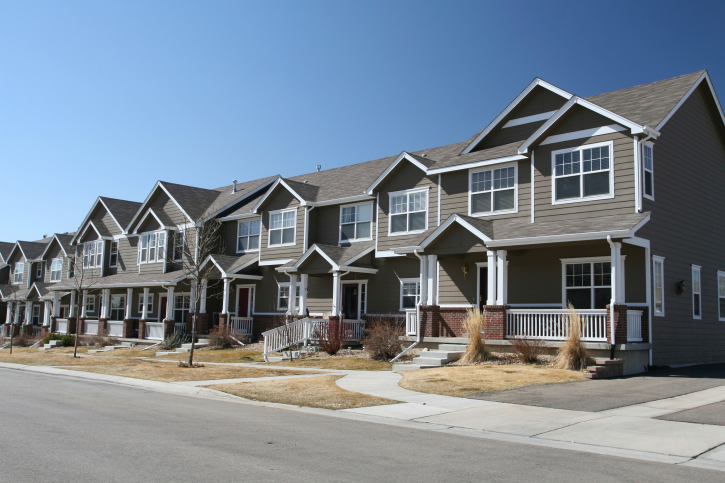 While some home buyers only want to live in a brand new home and will custom build a home to their specifications, others are drawn to the historic character and charm of a classic home. Older homes may have incredible architectural detail and special features that you simply do not want to change. However, there are some essential features that should be upgraded as soon as possible after you take ownership of your classic home.
While some home buyers only want to live in a brand new home and will custom build a home to their specifications, others are drawn to the historic character and charm of a classic home. Older homes may have incredible architectural detail and special features that you simply do not want to change. However, there are some essential features that should be upgraded as soon as possible after you take ownership of your classic home.
The Electrical Panel
Many older homes were built at a time when electricity use was at a minimum, but the reliance on electricity has increased over the years. Older homes may commonly have an electrical panel with 50 amps or less, but your current needs may require you to have a panel with at least 200 amps. It may be good to have an electrician inspect the electrical panel as well as the wiring in the home to determine if an upgrade is needed in your new home.
Re-Plumbing the Pipes
A quick plumbing inspection will tell you if the home has copper, steel or other materials used with piping. The best material is copper because it is resistant to leaking, corrosion and rusting. Steel pipes generally should be replaced with copper as soon as possible. Other materials, such as cast iron, may be acceptable to keep in place. However, sections may need to be replaced if the pipes are more than 50 years old.
Firestops in the Structure
The good news about the structure of older homes is that older homes generally are better built than newer homes. However, most lack the critical feature of a firestop. A firestop essentially can minimize how fire travels through a home. Adding firestops to an older home can improve safety for the home’s occupants in the event of a fire and can minimize fire damage.
It is understandable that you may want to retain the historic character and charm of your older home. These may have been the features that you fell in love with when you bought it. However, you also want to ensure that the home has modern features that will make it comfortable and safe for you and your family to live in. These are all important improvements that you will want to make now that ultimately could improve your experience throughout the entire time you live in your home.
 All real estate transactions come with at least some negotiations, and some transactions are heavily negotiated from start to finish. As a home buyer, you understandably want to negotiate the best overall deal possible while successfully reaching your goal of closing on the home you have fallen in love with. To be truly successful with this process, it is important that you understand how to negotiate with the seller and the seller’s real estate agent.
All real estate transactions come with at least some negotiations, and some transactions are heavily negotiated from start to finish. As a home buyer, you understandably want to negotiate the best overall deal possible while successfully reaching your goal of closing on the home you have fallen in love with. To be truly successful with this process, it is important that you understand how to negotiate with the seller and the seller’s real estate agent. It was very common decades ago for several generations of a family to live together, and this may have included kids, parents, grandparents and even great-grandparents in some cases. Today’s modern homes are generally designed to accommodate a more traditional modern family, which includes only parents and kids or for only a married couple without kids. When you are buying a home for other generations as well, it is important for you to pay attention to a few important points.
It was very common decades ago for several generations of a family to live together, and this may have included kids, parents, grandparents and even great-grandparents in some cases. Today’s modern homes are generally designed to accommodate a more traditional modern family, which includes only parents and kids or for only a married couple without kids. When you are buying a home for other generations as well, it is important for you to pay attention to a few important points. When you purchase a new home, escrow is a word that you will hear numerous times from different parties. There are several types of escrow accounts that will be established, and you may be wondering where your money will go when placed in an escrow account or how it is applied to your transaction. By taking time to learn more about the escrow process, you can be a more informed buyer.
When you purchase a new home, escrow is a word that you will hear numerous times from different parties. There are several types of escrow accounts that will be established, and you may be wondering where your money will go when placed in an escrow account or how it is applied to your transaction. By taking time to learn more about the escrow process, you can be a more informed buyer. Entering into the real estate market requires time and monetary commitment. Depending on the purpose for purchasing rental property determines whether one should invest in a single family or multi-family dwelling. In either case, one should prepare short or long term goals, be cognizant of his or her financial health and monetary comfort zone, and conduct a comparative market analysis before considering a real estate investment.
Entering into the real estate market requires time and monetary commitment. Depending on the purpose for purchasing rental property determines whether one should invest in a single family or multi-family dwelling. In either case, one should prepare short or long term goals, be cognizant of his or her financial health and monetary comfort zone, and conduct a comparative market analysis before considering a real estate investment.